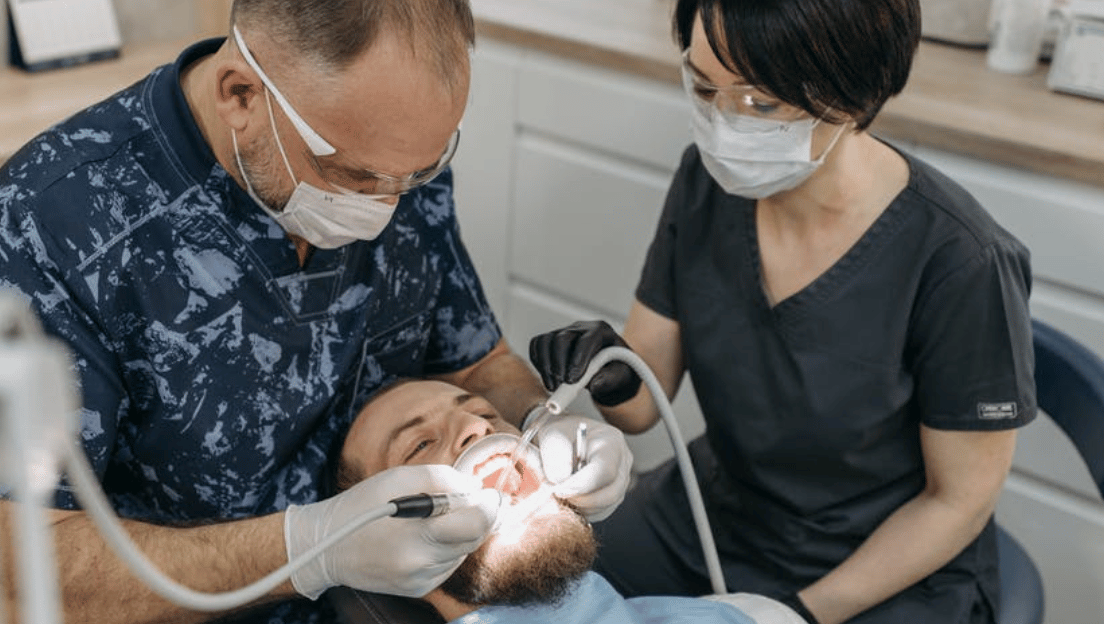Many people tend to ignore their oral health until a problem becomes severe. To maintain a healthy smile, recognize the early signs that you might need professional help. Be aware of these indicators so that a single check-up won’t turn into a complicated dental procedure. Regular dental visits can catch issues before they worsen, and these are some signs you should look out for.
Persistent Pain or Discomfort
Experiencing ongoing pain or discomfort in your mouth is the clearest sign that you should seek help from a dental professional. It can manifest in the form of a dull ache or a sharp pain. Either way, a simple pain can have severe consequences if left untreated. The pain can originate from cavities, gum disease, or even abscesses that could worsen. Pay attention to when the pain occurs; if it’s triggered by specific foods or temperatures, this could indicate sensitivity or decay.
Constant discomfort can interfere with eating, speaking, and sleeping. If you are from that specific area, address the issue with your dental team in Broken Arrow and prevent complications that may require extensive treatment later on. Trusting your instincts about what feels abnormal will solve many dental problems on time.
Changes in Gums
Healthy gums should be firm and rosy, not swollen, bleeding, or receding. Unusual changes in your gums can signal gum disease or other health issues, which may develop silently without noticeable pain. If you notice blood when brushing or flossing, you might be experiencing gingivitis, an early stage of gum disease.
Untreated gum disease can progress to periodontitis and even tooth loss. Watch for any discoloration or strange textures to keep the possibility of infections or the presence of cysts at bay. Regular cleanings and checkups can mitigate these risks. Your dentist can provide personalized tips for maintaining gum health, helping you avoid more serious conditions.
Tooth Sensitivity
Tooth sensitivity is a common issue faced by many individuals, where discomfort is experienced while consuming hot, cold, or sugary foods and drinks. This sensitivity can arise due to enamel erosion, gum recession, or even tooth decay. If you find that your teeth respond painfully to everyday items, it’s a clear indication that you need to consult your dentist.
Persistent sensitivity may indicate underlying dental issues that could worsen without intervention. Treatment is available for alleviating this discomfort, ranging from specialized toothpaste to more comprehensive procedures that can reinforce enamel or treat cavities. Discussing your sensitivity with a dental health professional guarantees that you receive appropriate care tailored to your specific needs.
Bad Breath That Won’t Go Away
Chronic bad breath, or halitosis, is dismissed as a minor inconvenience. This persistent condition can be a sign of serious underlying dental issues, including gum disease or tooth decay. If your bad breath doesn’t improve with regular brushing, flossing, and mouthwash, it might be time to see a dental provider.
Swollen gums and tooth pain are some of the symptoms that may accompany persistent bad breath. A professional examination can determine the root cause and guide tailored remedies that freshen your breath and improve your oral health. Addressing the underlying issues leading to halitosis can boost your self-confidence and quality of life.
Teeth Grinding and Jaw Pain
If you regularly wake up with a sore jaw or headaches, you may be grinding your teeth, a condition known as bruxism. This behavior can occur unconsciously during sleep, which results in wear on your teeth and discomfort in your jaw and face. Prolonged grinding can be the primary cause of enamel loss, tooth fractures, and increased muscle tension around your jaw.
Bruxism is linked to stress, misaligned teeth, or even sleep disorders. Inform your dentist about these symptoms to get a solution to this problem. Custom mouthguards or stress management techniques can do the job. Addressing teeth grinding can protect your smile and mitigate potential long-term damage.

Frequent Cavities Stubbornly Returning
If you find that you are experiencing cavities more frequently despite maintaining good dental hygiene practices, it’s time to reevaluate your approach. Recurring cavities could imply that there are deeper cleanliness issues, such as inadequate brushing techniques or dietary choices high in sugars.
A dental professional can provide thorough examinations to diagnose any problems correctly, whether it’s related to gum health, enamel strength, or even genetics. They might recommend specialized tools or techniques to improve your defenses against decay. Regular checkups can address these persistent issues so that your oral health is still robust. Solutions tailored to your specific circumstances can build better dental habits and minimize the risk of recurring cavities.
Recognizing signs that call for professional attention can prevent more severe issues. From ongoing pain to frequent cavities and persistent bad breath, these indicators shouldn’t be ignored. Seek immediate assistance from a qualified dental team to maintain a healthy and bright smile. Regular check-ups and thorough examinations can identify underlying concerns to keep your dental wellness vibrant.




